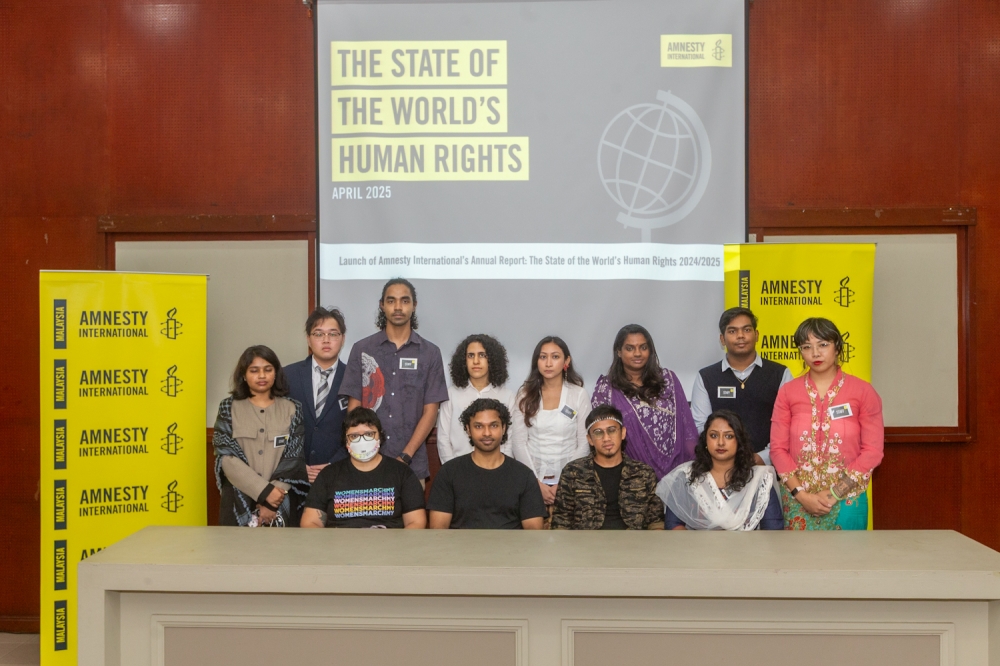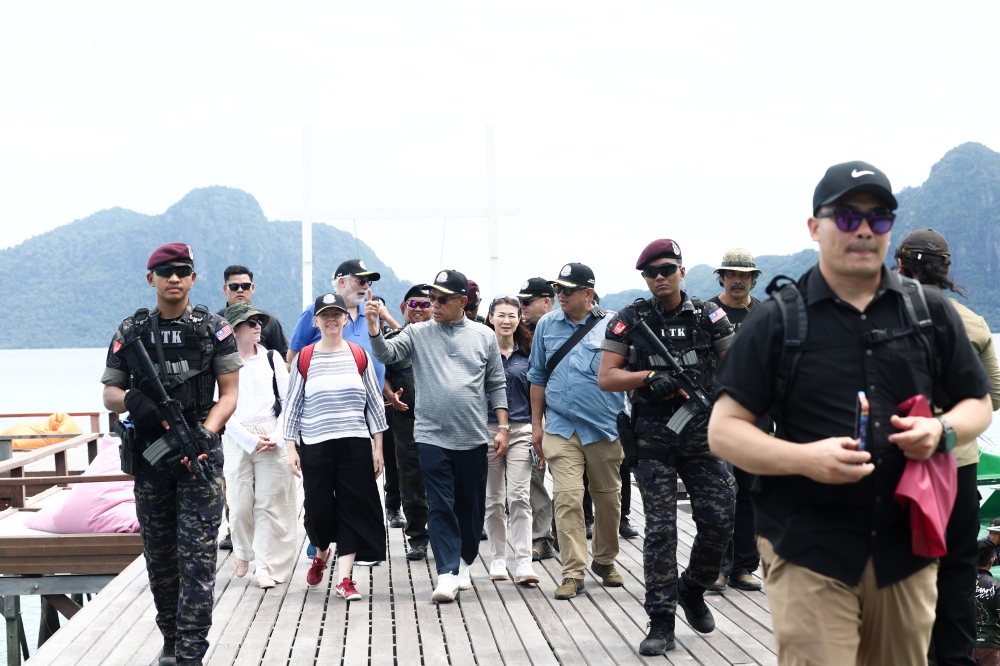KUALA LUMPUR, April 29 — Allegations of custodial deaths and police misconduct remain among Malaysia’s most pressing human rights issues, Amnesty International said in its State of the World’s Human Rights report for 2024 released today.
According to official figures, 24 custodial deaths were recorded between 2022 and May 2024, with authorities attributing all cases to “medical reasons”.
Separately, 20 deaths were reported in immigration detention centres within the first half of 2024 alone.
Despite these alarming numbers, Amnesty International and other civil society groups criticised the lack of transparency and independent oversight.
The human rights organisation reiterated calls for the government to strengthen the Independent Police Conduct Commission (IPCC), warning that without greater authority and independence, the body would remain ineffective in holding law enforcement accountable.
Speaking at the launch, Amnesty International Malaysia’s interim executive director Vilasini Vijandran said Malaysia’s treatment of refugees, migrants and detainees was one of the most pressing concerns marked by indefinite detention, denial of legal safeguards and systemic abuse in detention centres.
“From arbitrary detention to unchecked abuse, the government’s current approach not only dehumanises people in search of a better life but entrenches a system of impunity,” Vilasini said.
In September 2024, Prime Minister Datuk Seri Anwar Ibrahim announced that both the police and the Human Rights Commission of Malaysia (Suhakam) would conduct investigations into injuries and deaths of detainees in custody.
However, Amnesty International noted that systemic issues of abuse and poor detention conditions continue to persist.
Amnesty International also acknowledged Malaysia’s progress in reducing death sentences following the 2023 Abolition of Mandatory Death Penalty Act, which led to a significant decrease in death row populations.
As of this January, 140 people are on death row including 43 whose death sentences were upheld by the Federal Court as part of the resentencing.
She said despite fewer death row sentences, the government had yet to follow through with steps to abolish the death penalty entirely.
The courts continued to hand out death sentences for drug-related offences, defying international law and undermining the government’s own claim of progress.
“True reform must address systemic injustice. Until the death penalty is abolished in full, the right to life remains under threat,” she said.
Concerns were further amplified following the death of a detainee in Pokok Sena prison in October 2024, who succumbed to a bacterial infection after being whipped, despite having had his death sentence commuted.
The report paints a grim picture beyond custodial settings as well.
Amnesty found that refugees and migrants were subject to indefinite detention under harsh conditions, with over 17,000 people detained in 25 centres nationwide.
The United Nations High Commissioner for Refugees (UNHCR) has been denied access to these centres since 2019.
On legal reforms, Amnesty International criticised the government for failing to amend or repeal restrictive laws such as the Sedition Act and the Printing Presses and Publications Act.
Instead, authorities expanded powers under the Communications and Multimedia Act (CMA) in December, raising fears of intensified censorship and suppression of dissent.
Freedom of assembly also suffered setbacks, with police using the Peaceful Assembly Act, Penal Code, and Minor Offences Act to investigate and detain protesters, including pro-Palestinian demonstrators and organisers of the Women’s March Malaysia.
Research and advocacy officer Nicole Fong said in 2024, freedom of expression regressed as Pakatan Harapan did not adhere to their manifesto.
“The CMA (Communications and Multimedia Act) had restrictive amendments while the Online Safety Act was rushed and passed despite civil society concerns on the swift consultations and rushing through amendments.
“It’s also managed by MCMC and not independent and there’s no clear definitions as to what constitutes offensive content. Instead of repealing these laws, it was used to crack down on artists and activists,” she said.
Amnesty concluded by urging the government to address structural issues within law enforcement and detention systems, and to honour its pledges towards greater transparency, accountability and protection of fundamental rights.







